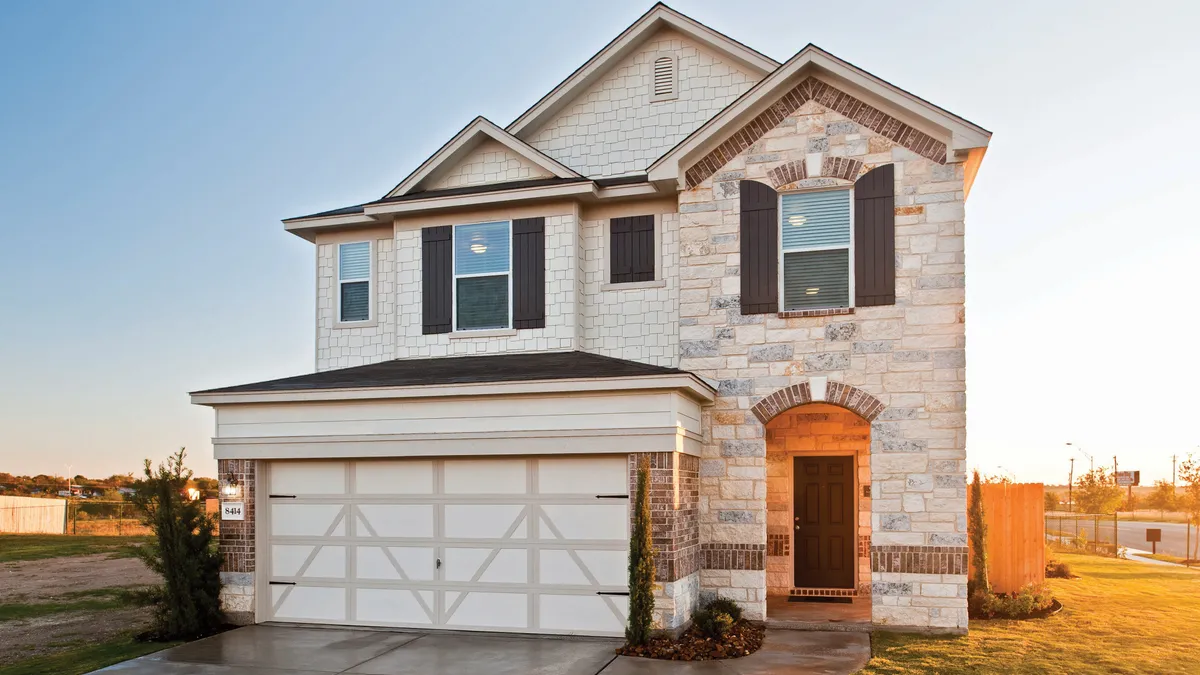Dive Brief:
-
KB Home built more than 100,000 Energy Star–certified homes in 2016, as well as 11,000 new homes with Water Smart or WaterSense labels, 5,100 solar-powered homes and 150 LEED Platinum homes, according to the company’s 10th-annual corporate sustainability report. For the ninth year in a row, the builder improved its new homes' average Home Energy Ratings System score.
-
The report estimates the company’s actions prevented greenhouse gas emissions equal to those produced by 335,000 vehicles and conserved 1.2 billion gallons of water.
-
The solar-power generation systems within the company’s communities produced as much energy as an 11.4-megawatt solar power plant, offsetting an estimated 11,700 tons of carbon dioxide annually.
Dive Insight:
Production homes are steadily getting greener as the related products and systems gain mainstream acceptance. KB Home, Meritage Homes and other builders offer partnerships with photovoltaic integrators as a way to differentiate their properties for buyers seeking energy-efficiency. The National Association of Realtors noted in a recent report that more than half of real estate agents surveyed said buyers were interested in energy efficiency when it came to their homes.
In a recent survey of single-family builders by the National Association of Home Builders, 22% said they typically certify their homes to Energy Star, LEED or state or local sustainability standards. Many builders construct homes to those specifications but don’t get a formal certification.
Some builders and developers are choosing to plan entire communities around renewable energy. A 180-home, master-planned community developed by Lennar and powered by an onsite 443-acre PV system is in the works for southwest Florida. Advances in PVs to make the technology more visually appealing and cost-efficient have helped it gain ground. The Department of Energy predicts rooftop PV systems will top as many as 3.8 million homes by 2020.
Other initiatives, such as those to include Home Energy Rating System scores in some home appraisals, are upping the ante on sustainable building by helping builders better justify the return on investment of adding such systems to projects.












